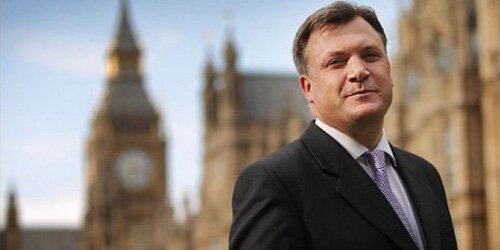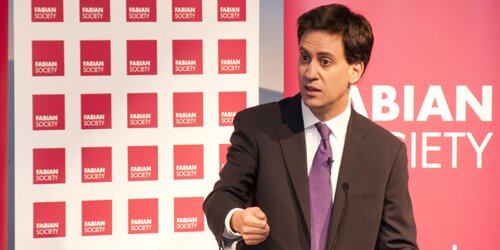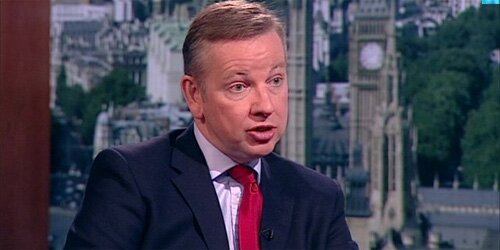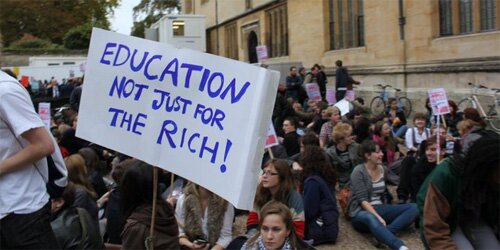Interfering with the Anglican Church
8:45 am - December 17th 2007
| Tweet | Share on Tumblr |
According to my Facebook profile, I am variously an anesthetist, and aesthete, and (less frequently) a non-practicing atheist. But whatever guise I choose for myself, I tend to look upon the tribulations of Dr Williams with the detachment of an outsider. I reason that because I’m not a church-goer, the possible ‘schism’ over gay clergy should not really concern me.
But now I’m wondering whether that is the correct view. Looking again at the word ‘Anglican’, it occurs to me that this particular Communion of Churches might actually be considered an exporter of British ‘soft power’ and influence, much like the British Council. The Church of England is still a formal branch of our state, and Anglican Bishops sit in the House of Lords. Furthermore, it is the British Prime Minister who effectively appoints the Archbishop of Canterbury. So I would say that the Archbishop and his Church are formal (though obviously not democratic) representatives of our country.
If The Church represents us all, is is not reasonable for atheists, agnostics and secularists to poke their nose into its affairs? Traditionalists say that Britain is still essentially a Christian country built on Christian morals. If that is the case, and while Church of England retains its privileged position in our political system, then I would say that us non-believers have the right to interfere in its policies and rulings.
I imagine that such an interference, should it come, would require Dr Williams to take a more liberal approach to homosexuality. He should commit the Church of England to a more tolerant stance (which we suspect he favours anyway).
Some might say that by taking an approach that is too liberal, Dr Williams will only catalyze the ‘schism’ in the Anglican community. Indeed, Dr Williams himself seems to hold this view. However, this is actually a very odd way of looking at The Church and at religion in general. In other situations, such as over the use of contraception or who to vote for in elections, we assume that the officers of religion hold enormous power over their flock. We assume that the pronouncements of an Ayatollah here or a Cardinal there, will inform, sway and change the values of their congregations. In a way, it is odd that we do not assume a liberal sermon from the most senior Anglican bishop would have a similar effect.
Yet, what else can inspire a better attitude to homosexuality, other than standing up to the conservatives, demonstrating that their intolerance breeds nothing but hate and harm? Its time for the Archbishop to speak up for the values of love and tolerance which Jesus stands for (regardless of his alleged divinity), and show that those values are embodied by homosexual members of the Anglican Church. He should hope and trust that the schism, when it comes, occurs (as it should) within the congregations of the conservative African Churches, rather than between Churches within the communion. Such an outcome is by no means guaranteed… but hey, that’s what Faith is for. Take the leap, Rowan.
| Tweet | Share on Tumblr |  |
Robert Sharp designed the Liberal Conspiracy site. He is Head of Campaigns at English PEN, a blogger, and a founder of digital design company Fifty Nine Productions. For more of this sort of thing, visit Rob's eponymous blog or follow him on Twitter @robertsharp59. All posts here are written in a personal capacity, obviously.
· Other posts by Robert Sharp
Story Filed Under: Blog ,Religion
Sorry, the comment form is closed at this time.
Reader comments
(which we suspect he favours anyway)
We know Dr. Williams’s personal opinion is much more in favour of liberalisation than his official position. Before he became Primate of All England he published a number of works about this topic.
The problem is not the effect of any decision over the whole of the Anglican communion but on a small number of men, the staunchly illiberal archbishops who have said they will secede from the communion if he does. This draws a direct parallel with politics, Dr. Williams doesn’t want to preside over the breakup of the communion and therefore a loss of power of his office any more than a Prime Minister wants to introduce PR and end their association with the system that gave their party a majority.
Having been privileged to know the greatest 20th century Archbishop of Canterbury, Michael Ramsey, who was stalwart in his unflinching support for the decriminalisation of homosexuality in the 1960s, I find Rowan Williams’ fence-sitting attitude over a matter which is essentially one of Christian charity sadly disappointing. He is a typical prevaricating mugwump, with his mug on one side and his wump on the other.
One thing I didn’t deal with in the post, above, is how we, The Great Unbelieving British Public, could put pressure on the Archbishop to get off the fence on the side of tolerance. Would it have to be done via the Churches, the Politicians, the Monarchy… or just go straight to Lambeth Palace?
The issue of homosexuality is no reason for the Anglican communion to schism.
Really this is an issue of lexicology and definitions, which paints a picture for the whole of society.
Homo-sexual reproduction is biologically impossible (although it may become practical science in the near future), so according to theological doctrine homosexual intercourse does not reflect a real psychological identity separate and pared from the rest of society. Some churches do extrapolate this to mean that homosexual behaviours (including physical intercourse) are to be discouraged and others go even further, taking the absolutist view that these should be outlawed and punished.
This does, of course, depend upon a view being taken as to how the practice coheres with the greater part of church beliefs, but then again, this is why it is called a communion and not called a religion.
The potential for a schism reflects the reality that many African churches commune more closely with Roman (conservative/traditionalist) orthodoxy than their Anglican (liberal/realist) counterparts and the battle for adherence (and adherents) can be seen to have an entirely political dimension in this way.
The way we each resolve the problem reflects and defines out own political outlook.
If we view the established church as a constituent grassroots organisation representing the spiritual needs of the community they serve then we may choose to attend the services (or not) provided for and by that congregation, though that may mean travelling to a different building or area to do so, or setting up your own.
However, if we see it as a top-down instrument of state constituted for and by the powers-that-be then a whole lot of energy will be expended shouting each other down in a battle for legitimacy and supremacy between ever-shifting versions of ‘them’ and ‘us’.
Interesting. I think you’ve missed some of the nuancing, though.
I suspect that the Archbishop of Canterbury actively supports gay rights on a theological basis (read his paper The Body’s Grace). He is, though, in a minority; there is a substantial grouping that actively opposes gay rights on theological grounds and another grouping that has no opinion on theological grounds, but breaks down into pro, anti and agnostic. This is equally true in the much-demonised conservative churches that seem determined to insist on their dogma becoming mandatory (which is itself against the via media traditions of the C of E.
Given, though, that at least the leaderships of those churches seem to find the very notion of differing views on, for instance, homosexuality abhorrent, it’s not unreasonable to ask why they don’t just break from the Anglican Communion. The answer, I think at least in part, is in the House of Lords. While it is certainly true that much of the Archbishop of Canterbury’s power within both the C of E and Anglican Communion comes from cajoling and persuasion, he has something approaching a bully pulpit as noone has, for historical reasons, the authority of the occupant of the Chair of Saint Augustine. That translates into political power.
Tony Kennick – in Williams’ case, I genuinely think that he does not want an office, which he currently holds, that he believes is a force for good to lose power. I don’t think it is any personal desire for power on his part in any way, shape or form.
I suspect that Rowan Williams and people of similar religious views to him support the via media for the same reason as Elizabeth I; binding people into a larger whole stops the nutters causing problems. The advantage of keeping them in, from the point of view of Lambeth Palace, is that it offers greater opportunity to challenge the views of the intransigent, conservative leaderships with a view to supporting the more, ahem, enlightened people at the second and third levels of seniority in the African churches. The same applies to the C of E itself, as a split in the Anglican Communion would lead to a realignment of churches in England as well and would, I think, strengthen the hands of less enlightened sections within the Church of England (which would retain its historical importance and emotional affiliations). For that reason, I disagree with Anticant.
While it may not be possible to change people’s views on, say, homosexuality, it may be possible to get them to focus on other things by saying that they are of at least equal concern to the Church from theological and practical perspectives.
For that reason, I have to disagree with Robert; nothing could be worse than to give the conservatives the added ammunition of a liberal-religious/secularist conspiracy to overturn the True Faith.
I support disestablishment; however, it must be done in a way that is sensitive to the issues that the C of E and Anglican Communion face.
xD.
http://www.youtube.com/watch?v=rHaVUjjH3EI
Reactions: Twitter, blogs
Sorry, the comment form is closed at this time.
NEWS ARTICLES ARCHIVE






















